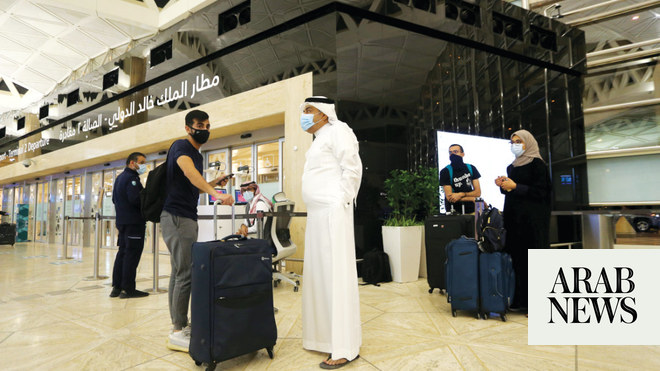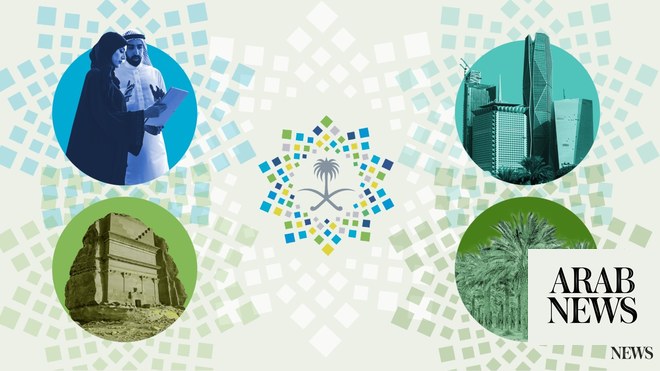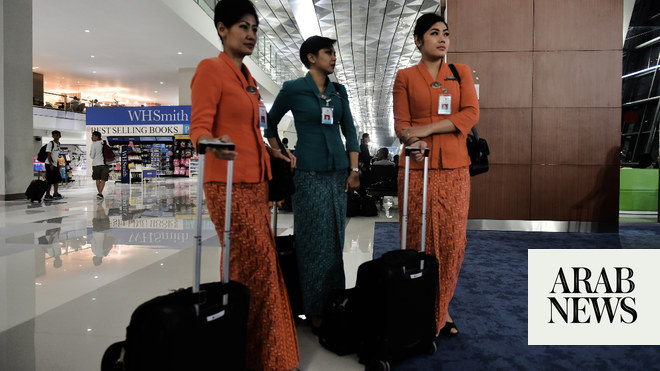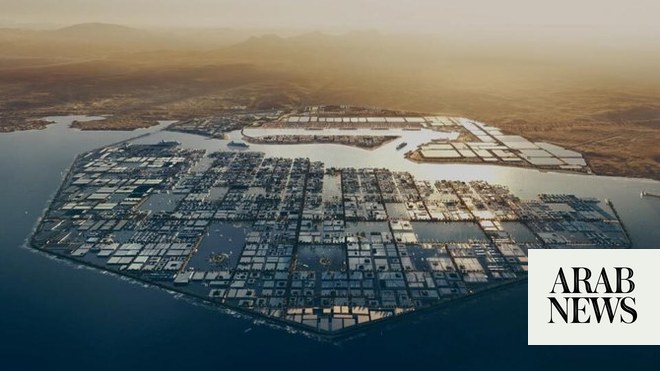
Kingdom has the potential to become a gateway connecting Asia Pacific to Europe and America, says expert
RIYADH: The launch of the Kingdom’s strategic plans to become a global tourism and logistics hub has added a new impetus to its fast-evolving aviation industry, which can be bolstered by investing in innovative technologies, suggested a report issued by the King Abdullah Petroleum Studies and Research Center.
Speaking to Arab News, Abdulrahman Alwosheel, a research associate at the Riyadh-based center and co-author of the report, said due to its strategic geopolitical location, the Kingdom has all the potential to become a gateway connecting Asia Pacific to Europe and America, which will also help it achieve its tourism goals as envisaged in Vision 2030.
“There are several areas where Saudi Arabia can focus to enhance its aviation industry by improving infrastructure, increasing connectivity, investing in innovation and technology, developing a skilled workforce, and promoting tourism,” said Alwosheel.
The researcher said following the decision to allow tourist visas the Kingdom has made incredible progress in the tourism sector.
The KAPSARC report said advancement in the Kingdom’s aviation sector is key to achieving the goals outlines in Vision 2030. Saudi Arabia’s National Tourism Strategy aims to attract 100 million visitors by 2030 and increase the tourism sector’s contribution to the gross domestic product to more than 10 percent.
On the other hand, Saudi Arabia’s National Logistics Strategy, launched by Crown Prince Mohammed bin Salman in 2021, aims to position the Kingdom as a global logistics hub connecting three continents and improve transportation services. The strategy also seeks to improve the capabilities of the Kingdom’s air cargo sector by doubling its capacity to more than 4.5 million tons by 2030.
Alwosheel said further improvement in domestic transport could also play a crucial role in elevating the tourism sector in Saudi Arabia, which is already progressing steadily compared to its regional counterparts.
“Unlike the neighboring countries, such as Qatar, Bahrain, and the UAE, in which domestic transport needs are more limited, in Saudi Arabia, domestic transport can play a vital role in supporting growth by promoting and developing domestic tourism, including the development of aviation infrastructure and services,” he added.
The researcher pointed out that strategic alliances and joint ventures involving air carriers, manufacturers, airports, and government agencies could enable the aviation industry to leverage individual assets and skills to achieve the Kingdom’s goals.
Sustainability and challenges
The report emphasized the importance of sustainability in the overall development process of the aviation sector in the Kingdom. The think tank said unexpected circumstances caused by the COVID-19 pandemic such as a drop in demand, disruption of the airline industry, and the resultant financial losses served as a wake-up call to promote sustainable pathways.
Alwosheel noted that the cost factor is one of the major challenges the aviation industry should address while propagating the use of sustainable aviation fuel.
“SAF is more expensive than traditional fossil-based fuels, which can create a financial burden for airlines. However, with increasing demand and production, technological maturity, feedstock availability, and diversity, the cost of SAF is expected to decrease,” said Alwosheel.
According to the International Air Transport Association, the production of sustainable aviation fuel is estimated to meet just 2 percent of the sector’s needs by 2025.
SAF is produced in tiny quantities from feedstocks such as cooking oils and animal waste and costs two to five times more than traditional jet fuels.
Alwosheel added that SAF will become more cost competitive if governments, along with customers and suppliers of SAF and airports work together and devise ways to promote technological advancements in the fuel’s production. He also pointed out that integrating SAF production plants with existing oil and gas industries could help reduce capital costs.
“SAF production must be aligned with the region’s conditions since the production of biofuels could be limited. However, integrating it with the existing industries (petrochemical) can help reduce capital costs in developing facilities dedicated to producing SAF by considering co-processing pathways,” the researcher said.
He said another challenge for SAF uptake is the strict certification standards to ensure that it is sustainable and does not harm the environment.
“The development of a certification system that is universally recognized can be challenging. Consequently, with continued investment in research and development, increasing facilities for production and availability, and developing a robust certification system, the aviation industry can successfully embrace SAF,” said Alwosheel.
The ‘Passenger Load Factor’
Passenger Load Factor is “the percentage of available seating capacity filled with passengers, regardless of the seating capacity designation made by the airline or the cabin layout.”
According to the KAPSARC report, PLF is instrumental in assessing the profitability of airlines since it indicates that an airline has sold most of its available seats, which allows it to divide its costs among the total passengers carried.
Andres Guzman, a fellow researcher at KAPSARC, said that Saudi Arabia’s PLF has significantly improved, highlighting the Kingdom’s growth in the aviation sector.
“In fact, the lower PLF dilutes the benefits that aircraft manufacturers have made in the last years in improving fuel efficiency by considering new technology engines when the performance of the aviation sector is expressed in terms of the number of passengers instead of (the number of ) seats available,” said Guzman.
According to the researcher, making the aviation sector sustainable requires concerted efforts from all stakeholders including airline carriers, aircraft manufacturers, consumers, airports, and governments.
Guzman said despite financial challenges, aircraft fleet renewal has considerably improved the performance of the aviation sector, as newer aircraft are more fuel efficient, and they offer improved safety and reduced maintenance costs.
“As sustainability has become a global concern, governments and financiers could foster a smoother transition of fleet renewal programs by offering financial incentives in compliance with legislation on emissions reduction,” he said.











